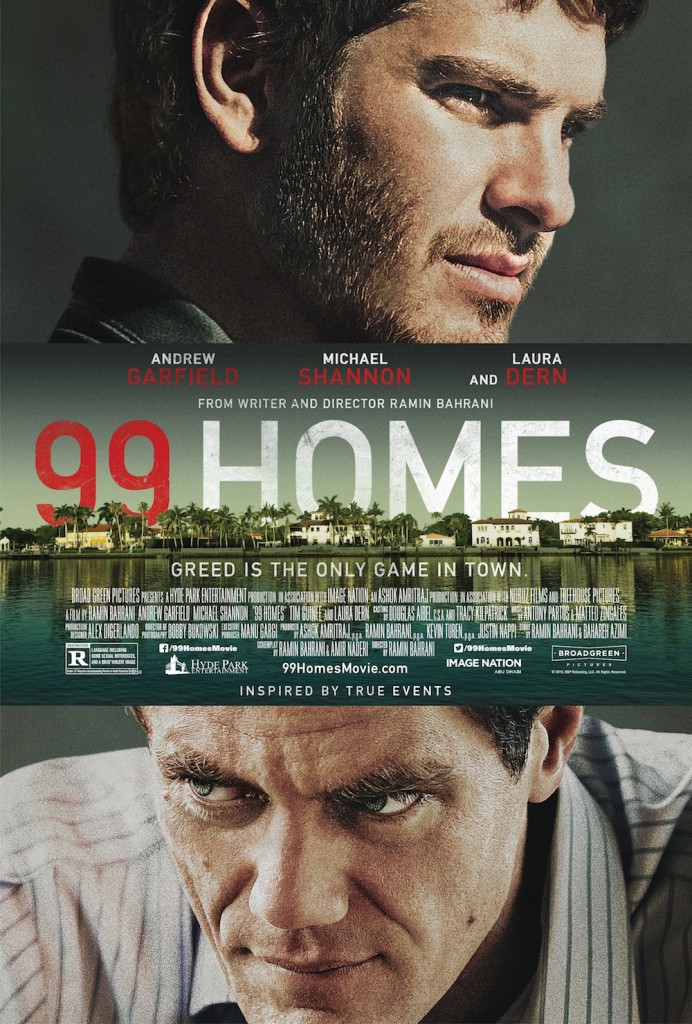Movie Breakdown: 99 Homes (Noah)
The Impression:
It’s got Michael Shannon playing a total asshole. What more do you need?
The Reality:
99 Homes feels, if you want to talk about books for a second, like an author’s first novel. It’s good – don’t get me wrong, it’s a strong film with great performances and relentless tone, and it’s super watchable (if you can call a film about the housing crisis in Orlando “watchable”) – but it feels raw, like you’re seeing too much of the sinew and grist behind it. It’s why first films are often a director’s most potent, the need to polish and make perfect isn’t there yet or isn’t allowed to be there due to constraints. This isn’t director Ramin Bahrani’s first film though, he was the mind behind hyper-indie films like Chop Shop and Man Push Cart, films that displayed a similar affection for beating the audience over the head with their messages. In 99 Homes we follow Dennis Nash (Andrew Garfield) a construction worker who’s evicted from his home by a greedy, massively corrupt real estate agent Rick Carver (Michael Shannon in full scene chewing majesty). When Nash hits financial bottom and ends up taking a job from Carver, he’s thrust down a lucrative path that leads him to the other side of the housing crisis fence, with all the emotional baggage it entails. Michael Shannon, as he’s like to do, crackles in this film, all e-cigarette smoking menace but somehow relatable all the same. Garfield has mastered the art of coming across as relatable, no matter how extreme the role, and his Dennis Nash is both seething with emotion, but also just a good guy caught up in trying to make a living. Bahrani wants to tell the story of Nash diving into the other end of the pool and he pushes Garfield’s character hard and fast into the real estate life, and it doesn’t always feel realistic. Overall, this is a very good film, but one that treads a very fine line between heavy-handed diatribe and solid emotional piece. It finds some sort of balance, but there’s no subtlety here, just a steep downward spiral into a moral abyss. The film ends on a powerful note, but one any viewer with half a brain can see coming. And maybe that’s where the film feels like a first novel by a talented author – it hits well-worn notes well, but at the end of the day, it’s the same damn song we’ve heard before.
The Lesson:
I never need to go to Orlando.


